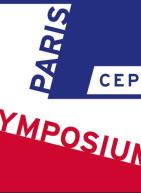DP19035 Identity, civic capital, and the narrow path
How to induce pro-social and civic behavior among our fellow beings? The question is as old as human society. We build a model in which identities à la Akerlof and Kranton (2010) help select equilibria that feature civic behaviour, following the original insight of Hume (1751). The model jointly determines identities, trust, and civic capital in a fully dynamic setting. Because of strategic complementarities, there are two steady steady-states that can be Pareto ranked. Starting from an abundant stock of civic capital, the resulting level of trust is high and society follows a “narrow path” to the high-trust, abundant-civic-capital steady state. The opposite happens if society starts from a low stock of civic capital. For moderate initial levels of civic capital, identities are not enough to pin down the equilibrium, and self-fulfilling prophecies can occur: once citizens stop trusting and come to believe others will behave un-civically, they change their behavior in ways that ensure that un-civic behaviour will occur. When we introduce one-time psychological costs of switching identities, the unique equilibrium can involve frozen levels of trust and civic capital. Since such equilibria only occur at moderate stocks of civic capital, and echoing the idea of a middle-income trap, we call this the “middle-civility trap”.

